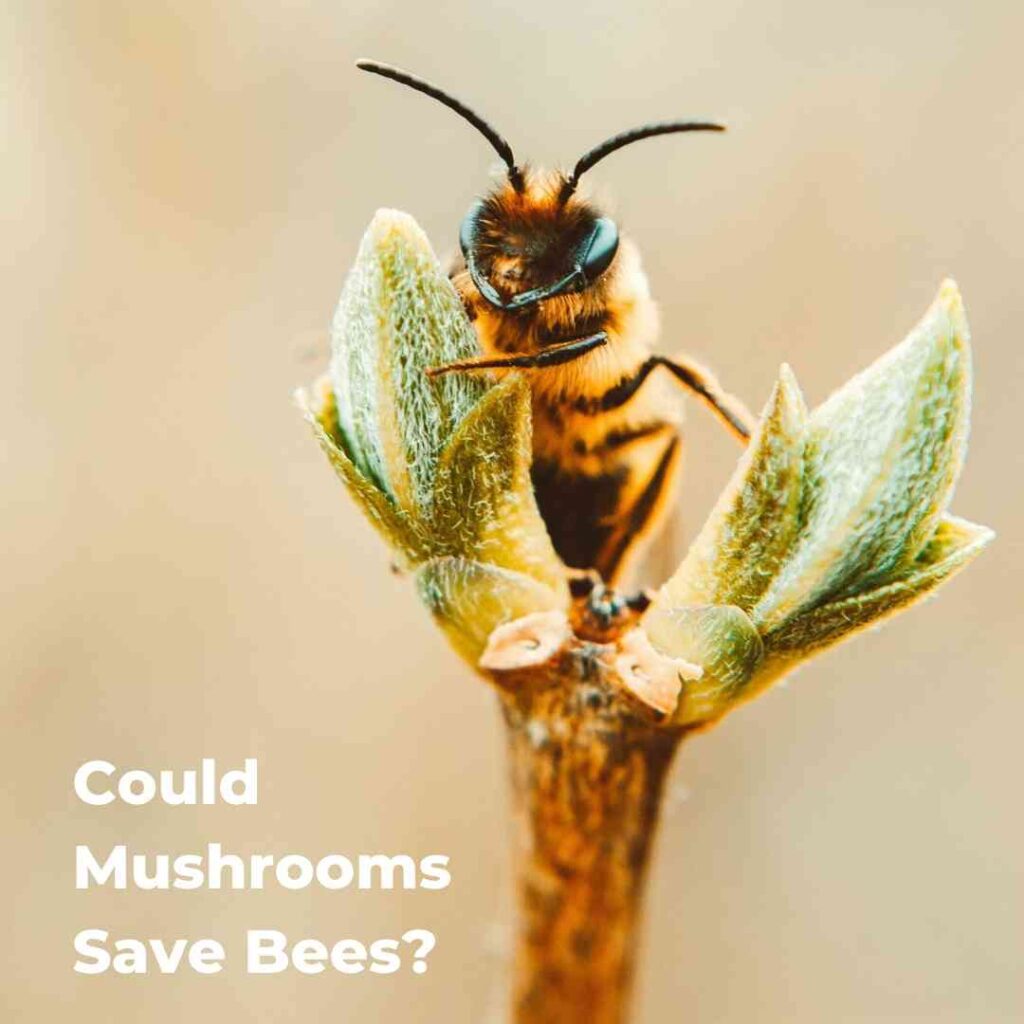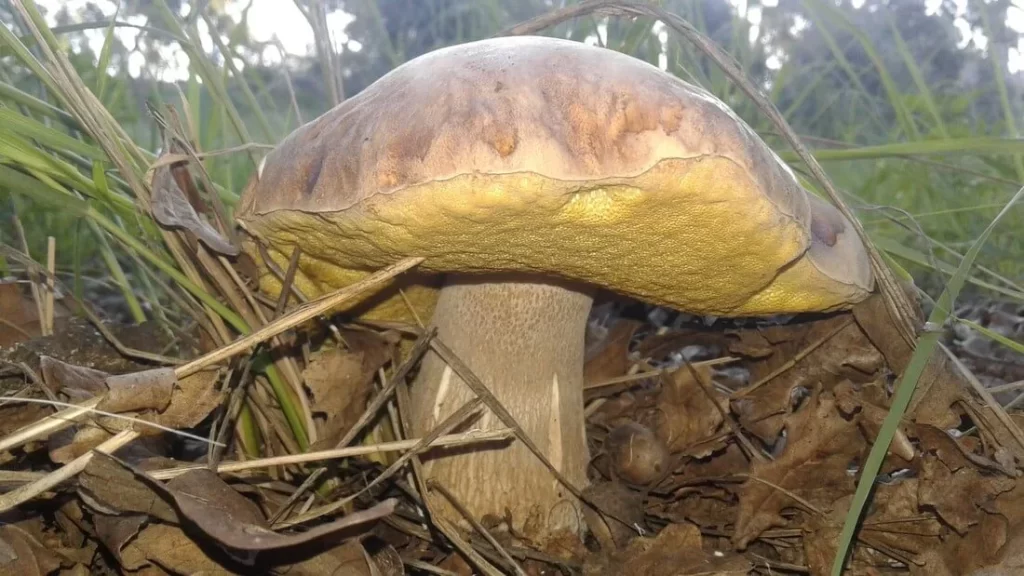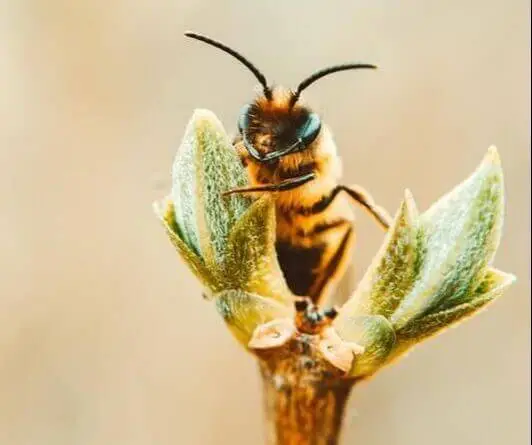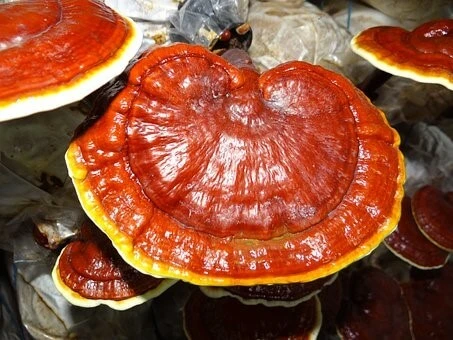
Could Mushrooms Save Bees?
Bees are a common talking point in environmental and agricultural circles, and for good reason: 70 of the 100 crop species that feed 90% of the world’s population rely on pollination by bees. Besides this, honey bees make many important medicinal products that are used cross-culturally, including honey, beeswax, and propolis.


These bracket fungi grow on dead wood and trees that have sustained damage to the bark (often from bear or wild cat scratches). Bees dig into these mushrooms to feed on the mycelium beneath their surfaces. In studies done by famous mycologist, Paul Stamets, bees fed with medicinal mushroom extracts showed significantly improved chances of overcoming viral infections. Bees are going through a tough time in the 21st Century, navigating the mass use of agricultural chemicals, noise and air pollution, purposeful extermination by scared and uneducated humans, monoculture, and habitat loss. The most well-known honeybees, as well as the lesser known wild bees like bumblebees and solitary bees, are all in serious decline. Some effort is being made to curb this but it is really not nearly enough, especially considering that human beings would likely face extreme famine if bees became extinct. This would be due to the lack of plant pollination as well as the knock-on effect up the food chain.

Global warming is compounding the problem – as unusual temperature changes cause bees to remain in hibernation at the crucial time in the beginning of Spring when flowers first open. This results in the first wave of flowers receiving little to no pollination while the bees become weakened by an unnaturally extended period with no food.
In short, the usual suspects are to blame: bad agriculture, habitat loss, and climate change. As conscious consumers, we must focus on these mega-problems by looking at our personal choices and by working in groups to fight destructive practices by large corporations and governments.
Here are some steps to take in one’s own home to protect bees, and their medicinal mushrooms:
- Only buy honey and other bee-made products from reputable beekeepers that use natural practices. (Do background checks and research!)
- Support organic and beyond-organic small, local farmers.
- Avoid buying new wood products from unsustainable sources. Second-hand and sustainably-harvested wood only.
- Greatly reduce your meat consumption, as animal agriculture is one of the biggest contributors to habitat loss.
- Grow as much of your own food, intercropped with herbs and flowers, as possible.
- Plant a wide variety of indigenous plants.
- Join tree-planting and forest-regeneration efforts and support these organisations with donations and exposure.
- If you have the space, plant indigenous and fruit trees, leaving any fallen, rotting branches to grow mushrooms.
- Space-allowing, keep a few bee hives.
It is up to each of us to take responsibility to preserve the incredibly intricate relationships of the natural world.
References:
https://www.dailymail.co.uk/sciencetech/article-7290469/This-happen-bees-extinct-save-them.html
https://www.bbc.com/future/article/20140502-what-if-bees-went-extinct
https://www.sciencedaily.com/releases/2018/10/181004100044.htm#:~:text=A%20mushroom%20extract%20fed%20to,according%20to%20a%20new%20paper.&text=FULL%20STORY-,A%20mushroom%20extract%20fed%20to%20honey%20bees%20greatly%20reduces%20virus,business%20based%20in%20Olympia%2C%20Washington.
https://www.americanforests.org/blog/the-interconnectedness-of-bears-mushrooms-and-bees/
https://www.youtube.com/watch?v=TuL42bCIgp4
https://www.beeculture.com/honey-bees-fungi/
Written By: Kelly Steenhuisen




